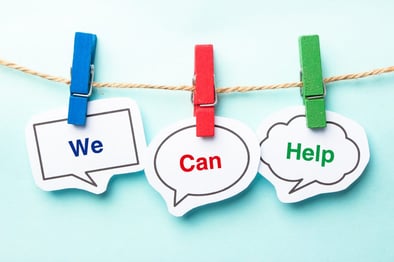One of the biggest obstacles to overcoming addiction or mental health setbacks is gaining the courage to begin fighting. First, we must admit that we need help and only then can we actively seek it. Facing the battle head on can seem overwhelming. It involves pain and deep emotional distress. A steep mountain seems to loom ahead. Deep will and great energy will be needed to reach its peak.
And we are tired. We are so very tired.
Deflection, procrastination, and distraction are simply easier options in the moment. And so, in the futile hope that our problems will resolve themselves we kick the can a bit further down the road. We wait for magical things to happen by themselves, forgetting that the magic resides within our own souls. Greatness- awareness, discovery, and real growth- lies there hidden, dormant, waiting.
Always waiting.
There are good people everywhere available to help, and valuable resources to be taken advantage of. Limitless possibility and the peace that comes with it beckons just up the road.

But the first step to making it reality is on us to take.
Conceptually the above sounds great and true. But it is still super hard.
A person might say:
“Give me something practical I can do to get started. It’s hard to face my pain, my shame, my crushing loneliness, and my tottering relationships. You can’t just expect me to ignore it all and forge ahead as if I’m ready to do this, as if my heart is light and free.”
We need a game-plan, right?
Let’s try to make one!
1. Email someone you think can help you.
Sometimes, speaking about our problems can seem intimidating. There are so many thoughts running through our heads at one time. There is a fear of not being able to articulate all these feelings properly and of being misunderstood. When we speak them out, they may jumble together, like a pitcher of water tipped over all at once. All that’s left is a giant puddle of conflicting emotions on the floor and you feel like you’ve made a mess.

For many of us, writing can help us organize the mixed-up signals in our brains. It may even help us understand our struggles better and realize stuff we had no idea was going on. It will make our struggle clearer, both to ourselves and to the person we are sharing with. The pressure of a face to face confrontation is eased and we can reach a place of genuine honesty. We can review what we have jotted down and hit send on that email once we are comfortable that the ideas flying around our heads are settled and coherent.
2. Find someone who has been where you are.
Sobriety can seem impossible and tackling mental health issues scary. After all, when we struggle with these things, it seems to become part of who we are. Someone who becomes dependent on a substance can’t envision surviving the day without the help of drugs and alcohol.

Reaching out to someone who once felt those feelings and overcame it can open our eyes to what we are capable of. They will understand exactly what you are going through. There will be no judgement, only validation and empathy. From the vantage point of experience, they can offer guidance, help sort out your feelings and direct you through the maze of initial recovery. Perhaps they will recommend an addiction treatment center that works or put you in touch with the right people.
We recommend our Avenues alumni in recovery. They’ve been there and they get it!
3. Inquire if your employer has an EAP program.
Many companies offer Employment Assistance Programs. It can be an invaluable resource and one that sometimes can go untapped. They may offer online or telephone sessions free of charge. According to the U.S. Department of Labor, EAPs have been shown to significantly reduce medical costs arising from early identification and treatment of individual mental health and substance use issues. Because it will connect you with people who don’t know you personally, it can feel less invasive and intimidating.
4. Talk to your medical doctor.
Although your doctor may not be an addiction professional or an expert in mental health, he or she has a wealth of experience at their disposal. They may have seen similar issues in other patients and been able to connect them to the right people and places.

Often, you have a comfortable relationship with your personal doctor and you won't feel inhibited broaching these sensitive topics. Doctors have seen it all and are able to stay calm and level-headed through all kinds of stressful situations. They can help you come to terms with your condition and show you how to get real help.
Your doctors care about you. Let them help you out!
5. Discuss with a friend or family member you trust.
Sometimes we miss the most obvious solutions. We go off looking for treasure in faraway places when it sits in plain view. Many of us have family members who unconditionally love us. Don’t be scared to approach them. They will help you get stuff of your chest and make sense of the struggles you are going through. A little love and acceptance go a long way. It could even be that they already realize you need some help but are worried about approaching you and hurting your feelings.
They are waiting for with you open arms. Run into their embrace!
Believe in Yourself!!
Always remember that there are people all around us who have successfully battled addiction and mental health issues and are living meaningful, productive lives. They took the step of accepting help and surrounding themselves with love. Charge into battle with the knowledge that it can be done and you can do it. And all of those who love you so dearly will be cheering you on and bursting with pride.
Find the magic inside of you.
You are next!


